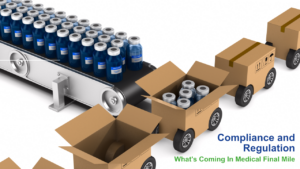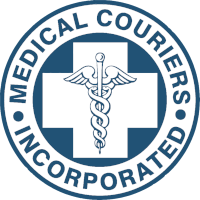As major companies in California wait on the edge of their seats to see if AB 5’s counter legislation, Proposition 22, will pass, many healthcare services companies are blind to the financial impact and repercussions this legislation will have on their business.
In our latest blog, The Hidden Costs of AB 5 to Medical Transportation, we outline how medical companies are facing liabilities and massive cost increases due to AB 5 legislation. While Prop 22 was introduced in response to the passing of AB 5, the impact it will have on medical companies is essentially the same, just to a different degree.
Let’s review in more detail.
The Financial Impact of Prop 22
AB 5 suggests all last-mile workers must become employees rather than independent contractors so they will receive higher wages and employee benefits such as paid time off, vacation, and health benefits.
Prop 22 would allow companies with last-mile contractors to keep their IC-model but would still require the companies to provide those essential independent contractors many of the same employee benefits as full-time staff. Prop 22 may be less costly to companies, but the legislation still poses a significant financial impact.
Whether or not AB 5 stands or Prop 22 comes into play, medical companies using an independent contractor fleet for their last mile delivery can expect a massive rise in delivery costs and liabilities to compensate for the new Carrier/Courier obligations. Providing employee benefits to IC’s can increase pricing by up to 38%.
Joint Employer Liabilities to Last-Mile Delivery
California is known for strict labor laws and favoring workers in the courts, regardless if those workers are full-time employees or contractors.
In 2019, Young v. Act Fast Delivery of W.Va., Inc. set the precedent for how companies can be exposed to joint-employer risks when hiring delivery fleets with independent contractors.
When Act Fast, the last mile delivery company, was sued by one of their workers, it was their customer who was held liable.
Omnicare contracted with nursing homes, long-term care facilities, and other institutions to provide and deliver prescription drugs and other pharmacy and medical supplies. Omnicare then contracted with Act Fast as a delivery courier in West Virginia. Act Fast hired the Plaintiffs as delivery drivers, classifying them as independent contractors.
The Plaintiffs’ theory was that they were improperly classified as independent contractors, rather than employees, and the failure to pay overtime or to compensate them for expenses related to the use of their vehicles for deliveries resulted in minimum wage violations.
The Court granted the Plaintiffs’ motion for partial summary judgment, finding that Omnicare was a joint employer of the Plaintiffs for purposes of the FLSA or the Fair Labor Statistics Act and that the Plaintiffs were employees rather than independent contractors.
Even though the independent contractors weren’t hired by Omnicare exclusively, the company was still seen as a joint employer in the courts.
In an independent contractor model, medical companies are exposed to these types of joint-employer liabilities whether they’re aware of them or not. With increased employee benefits for IC’s posed by Prop 22, we expect even more favor to be given to independent contractors.
Service Delays and Disruptions
Another implication posed by medical companies due to Prop 22 is service delays and disruptions.
Running an employee last-mile fleet for the past 50 years, we can tell you the management staff, training, and expertise required to manage each employee’s benefits packages, vacation time, and paid time off is no small task.
Most IC-model based companies don’t have the expertise for this level of management. With Prop 22, these companies will be forced to create an entirely new business model overnight. While they’re figuring out how to rearrange their business, you can expect service delays or even total disruption to your service.
Avoiding the Impact of Prop 22
So how can medical companies who need last-mile services avoid the massive increase in costs, liabilities, and service disruptions both AB 5 and Prop 22 impose?
By switching to an experienced employee-based fleet with a proven track record and the ability to scale.
Last-mile couriers with employee-based businesses have:
- Competitive pricing solved for the employee-based model
- Efficient systems and processes for managing employees and employee benefits
- Exemption from AB 5, Prop 22, and other IC-based regulations
- Ability to scale so you can serve more customers
At Medical Couriers, we offer this and so much more to our customers. Our 50 years of experience in the industry is something you can’t replicate overnight.
Experience the Medical Courier difference and why leading medical companies choose us for their last-mile delivery:
- Full-time, highly vetted, employee drivers
- Company-owned and audited “green” vehicles
- App-based delivery protocols that ensure the success of our drivers
- Never lost a specimen with 50 million specimens delivered
- Instantly Audit On-Time and Error Rates
- 50 years of experience
Are you using an independent contractor fleet for your last-mile delivery?
Speak with our team about how you can avoid the pitfalls of new legislation and keep your delivery moving forward.
Contact us today via email at info@medicalcouriersinc.com or by phone at 800-652-1147.
About Medical Couriers
Medical Couriers is a third-generation company with over 50 years of experience in medical specimen transport nationwide. Our highly-trained team of professionals stops at nothing to ensure your customers’ specimens are delivered on time and without error.











